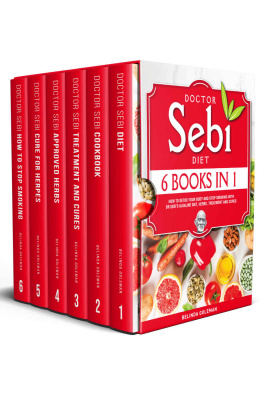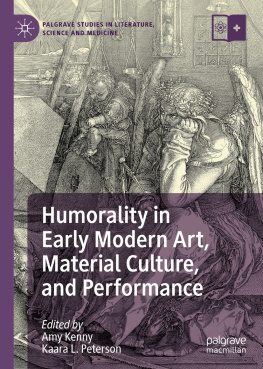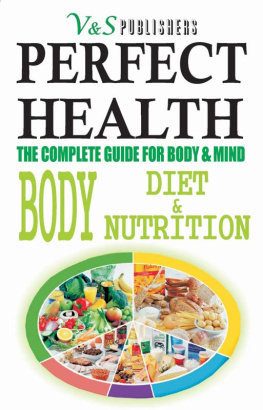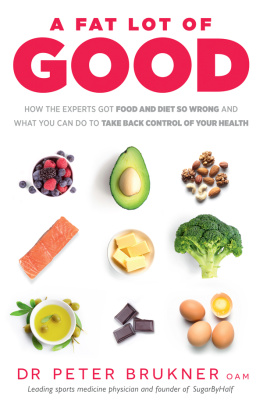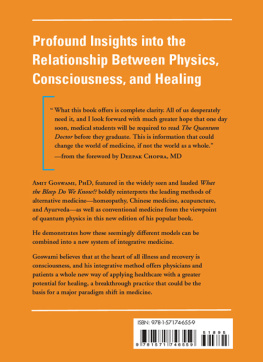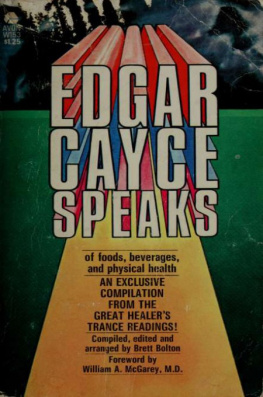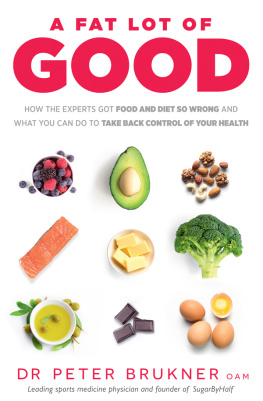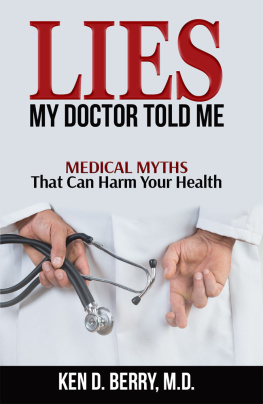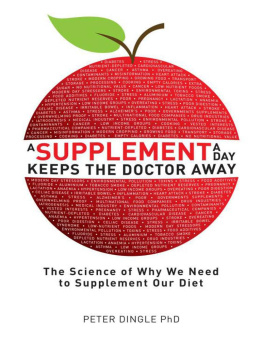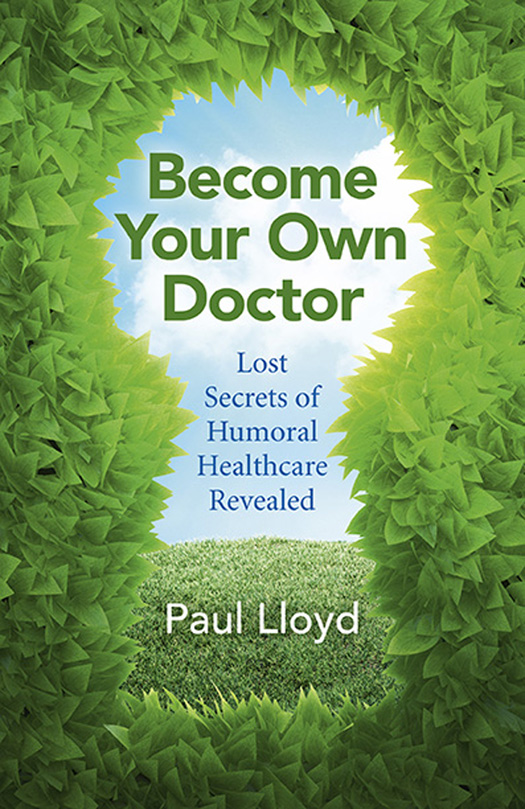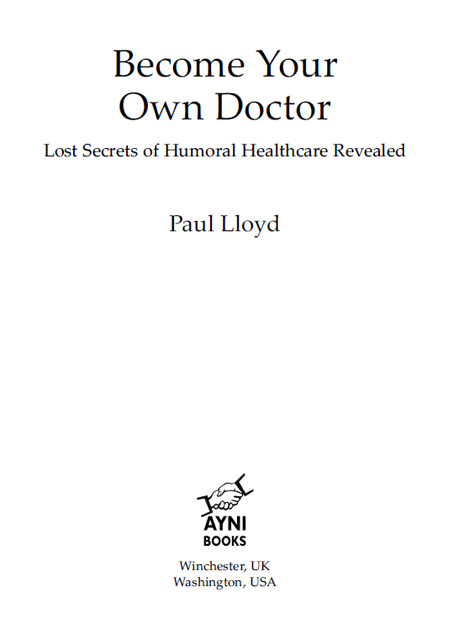WHAT PEOPLE ARE SAYING ABOUT
BECOME YOUR OWN DOCTOR
Classical and Renaissance physicians regarded food as medicine. Paul Lloyd revives their ancient science in his guidebook for healthy eating based on understanding the four humoral types: choleric, sanguine, melancholic and phlegmatic. Different foods can have positive or negative effects, and Lloyd explains how to find the right balance for optimal health. He includes tried-and-tested recipes utilizing common household and garden ingredients to treat a range of ailments according to humoral principles. Paul Lloyd has tapped into a cornucopia of wisdom that we can apply in these modern times of conflicting health advice.
Ruth Parnell, subeditor and book reviewer, NEXUS Magazine
First published by Ayni Books, 2016
Ayni Books is an imprint of John Hunt Publishing Ltd., Laurel House, Station Approach, Alresford, Hants, SO24 9JH, UK
www.johnhuntpublishing.com
www.ayni-books.com
For distributor details and how to order please visit the Ordering section on our website.
Text copyright: Paul Lloyd 2015
ISBN: 978 1 78535 390 1
Library of Congress Control Number: 2016931746
All rights reserved. Except for brief quotations in critical articles or reviews, no part of this book may be reproduced in any manner without prior written permission from the publishers.
The rights of Paul Lloyd as author have been asserted in accordance with the Copyright, Designs and Patents Act 1988.
A CIP catalogue record for this book is available from the British Library.
Design: Stuart Davies
Printed and bound by CPI Group (UK) Ltd, Croydon, CR0 4YY, UK
We operate a distinctive and ethical publishing philosophy in all areas of our business, from our global network of authors to production and worldwide distribution.
To the memory of Barbara Hazel Wellstood and Francis Kenneth Lloyd
Introduction
In the latter part of 2014, between finishing my book Food and Identity in England and starting my next university teaching assignment, I wrote a two-part article on alternative medicine for Nexus Magazine. In discussing the history of an ancient and time-honored medical theory and practice known as humorism, I showed briefly how this might be applied to modern-day living. Following the articles publication in April and June 2015 I received many messages from interested readers who wanted to know more about humorism and medical self-help. Clearly there was enough interest for me to expand on the topic, both in breadth and depth, by writing this book for the benefit of a wide audience.
But what was new to say on the topic? After all, in recent years many works have been published on alternative medicine a term that is sometimes used in a derogatory way by some doctors, but thankfully not all of them, who either ignore or choose to forget the roots of their own practice. These works on how to cure illnesses and how to prevent them from occurring in the first place, which, thanks to the internet, have been inspired by increased public awareness of medical matters and a growing interest in taking control personally over ones own healthcare, include instructing readers on how to make and administer herbal remedies. While these books are immensely valuable, they convey only part of the story of healthcare at home. This book is different. In recognizing the stark reality that highly trained medical experts in ancient times recognized that all foods, not just herbs, have essential medicinal properties, and that our choice in foods is the major factor in preventing and curing illnesses I unlock the treasure chest of bygone humoral wisdom and discuss home-made medicine and personal healthcare in a broad way.
Let me make it clear from the outset that this book does not intend to critique the modern medical profession. Few people would be rash enough to doubt the very real progress that has been facilitated by scientific research in recent years. Similarly, it seems obvious that modern nutritional theory is helping some people to live longer. To people outside the medical profession, however, it is equally obvious that the latest advice (whatever that currently may be) is not, and never has been, the final word of wisdom. Conflicting advice is everywhere we look with one group of researchers questioning the findings of another. Foods that were considered conducive to good health not long ago must, we are told, be deleted from our diets right now if we are to avoid diabetes / cancer / heart attacks, etc. As we all know, sugar considered to be a pillar of healthfulness in the early to mid-twentieth century is one such food that has lost favor with dieticians. Alcoholic beverages taken in small quantities are good for ones health, or bad for it, depending on which researchers you choose to believe; fresh fruit, a one-time inducer of all manner of ills, is considered essential at least for now; and processed meats do cause cancer according to a recent World Health Organization report that also says meat has health benefits, and, in the next breath, trumpets the notion that eating two slices of bacon could be dangerous (http://www.bbc.co.uk/news/health-34615621). We are told to eat plenty of fiber; sound advice, one might suppose, but how long will it be before this pearl of wisdom is consigned by researchers to the dustbin of medical history because some future study or another declares that fiber can cause health problems? There clearly has never been a better time to reappraise where we are going by looking back at where we have come from. In so doing, we might feel that there is much to gain by adopting a back-to-basics approach to daily regimen and medicine, and at once circumvent the need to wait an increasingly inordinate length of time to consult our hard-pressed general practitioners.
Prior to physicians, apothecaries and drug manufacturers adopting mineral and chemical compounds to cure health problems, which, cynics claim, were introduced to mystify the medical profession and justify practitioners wealth and prestige, effective healthcare was based on an ancient system known as humorism. Within this system the body was at one with its natural environment, and bodily imbalances that brought on disease were rectified by the patient (or his or her carer) applying a set of complex but easily understandable rules. We are told by many of todays doctors that medicine has moved on since then, and that we should trust the latest (and often controversial and/or contradictory) advice pushed by scientists and their young research assistants keen to convince us that they are the new holders of the ultimate truth. They claim we are fitter than ever before, and in any case, they say, there is no scientific evidence that half of the humors actually exist. But does this ancient medical knowledge lose its validity because of its age even though wise sages who practiced it in antiquity had a complex (and accurate) knowledge of mathematics and astronomy, and bequeathed to us also the calendar, time measurement, bookkeeping, law-making and civic society? Is humorism unsound because some humors can neither be found nor measured by scientists? If this is so, why should we be asked to believe in astrophysicists dark matter and cosmologists singularity neither of which have been proven to exist? Whether or not the humors khol and melas khol can actually be located and identified, the bottom line is that humorism was finely tuned and its medicines were used and used successfully according to a vast number of letters, diaries and notebooks to treat all kinds of ailments for centuries. These handwritten testaments are available for everyone to see at city and county record offices; I know because I have studied hundreds of them.


